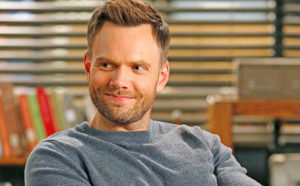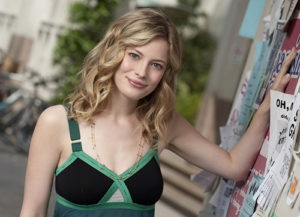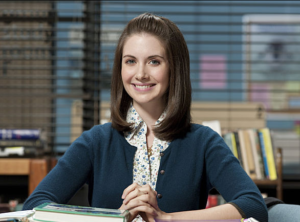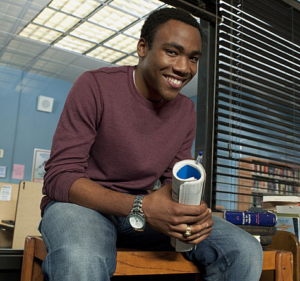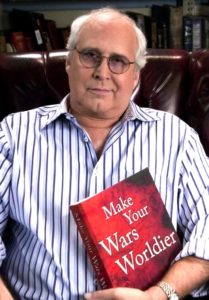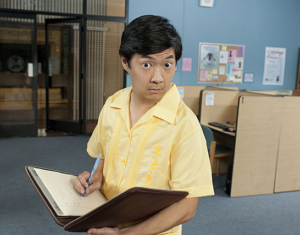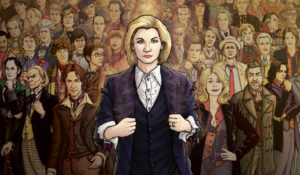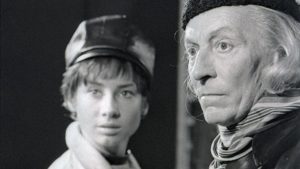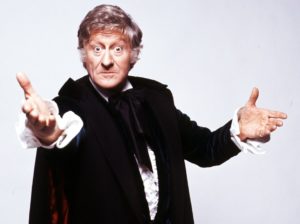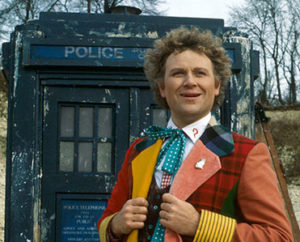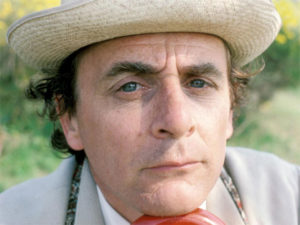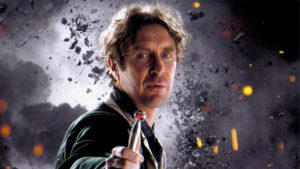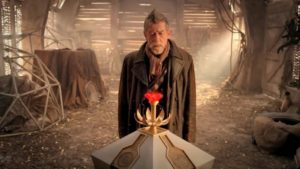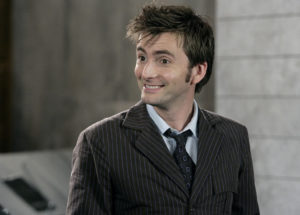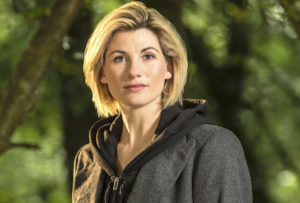Power of Idealism Month
This month is Power of Idealism month. We’ll be examining the type of Character who strives for excellence and never settles for second-best. Life is grand opera, where every emotion is heightened. They can’t just feel pain, they feel extreme pain. A romantic gesture isn’t enough, it has to over-the-top. “Complacent” or “satisfactory” isn’t in their vocabulary.
Throughout April, we will look at epic heroes, separated lovers and those coming of age. These Characters are dramatic types who are never satisfied and treat life as a never-ending pursuit of something better. They are passionate, intense and will never settle for anything less than the best. Even then, they will keep reaching for something better.
Hamilton
 Hamilton is the musical portrayal of the life of Founding Father, First Secretary of the Treasury and face of the $10 bill, Alexander Hamilton. In the musical, at least, Hamilton is a Power of Idealism Character. His best friend, Aaron Burr, is Power of Truth.
Hamilton is the musical portrayal of the life of Founding Father, First Secretary of the Treasury and face of the $10 bill, Alexander Hamilton. In the musical, at least, Hamilton is a Power of Idealism Character. His best friend, Aaron Burr, is Power of Truth.
Their conflict lies in Burr’s jealousy- he spends the musical asking “how could a bastard orphan” achieve everything that he does? Unlike Burr, who plays it safe, Hamilton always succeeds. Their argument lasting decades reaches its tragic end when Burr shoots Hamilton dead in a duel.
Every one of the songs that Hamilton himself sings relates to his relentless pursuit of crafting America in his own image. Everyone suffers for him- his wife Eliza, her sister Anjelica, his son and his political rivals. Hamilton breaks hearts and creates enemies as he embraces his epic destiny. It is not until later in his life, as the War of Independence is over and Thomas Jefferson arrives at the White House, that he faces defeat.
Everything that Hamilton does, he does for the American Project. Nothing else matters to him, because ever since his impoverished childhood, he’s had to write his way out to thrive. Talent serves him well, up to a point. His loss of a normal, happy life was America’s gain. In this musical, at least, it could be argued that Hamilton couldn’t have asked for a better death.
Epic Hero Stories
 There are three Power of Idealism stories- Separated Lovers, Coming-Of-Age and Epic Hero. Hamilton is the latter, as is the 2004 historical film Troy. These stories follow legends, warriors, and icons who are doomed to die in a noble cause- often in war. In Hamilton’s case, it was his refusal to back down. His greatness cost him his life, but he will always be remembered for his achievements.
There are three Power of Idealism stories- Separated Lovers, Coming-Of-Age and Epic Hero. Hamilton is the latter, as is the 2004 historical film Troy. These stories follow legends, warriors, and icons who are doomed to die in a noble cause- often in war. In Hamilton’s case, it was his refusal to back down. His greatness cost him his life, but he will always be remembered for his achievements.
Other Power of Idealism Characters in Epic Hero stories are Colonel Robert Shaw (Matthew Broderick) in Glory, King Leonides (Gerard Butler) in 300 and William Wallace (Mel Gibson) in Braveheart. All these Characters sacrifice themselves for glory and honor, and their stories will live on.
Lyrics
Some of these lyrics from various Hamilton songs sum up Hamilton’s attitude and the Power of Idealism mindset. They also demonstrate how Hamilton is part of an Epic Hero story:
You could never back down
You never learned to take your time!
Alexander Hamilton
[King George] ain’t ever gonna set his descendants free
So there will be a revolution in this century
Enter me!
[…] Don’t be shocked when your hist’ry book mentions me
I will lay down my life if it sets us free.
[…] I imagine death so much it feels more like a memory
When’s it gonna get me?
In my sleep? Seven feet ahead of me?
If I see it comin’, do I run or do I let it be?
Is it like a beat without a melody?
See, I never thought I’d live past twenty
Where I come from some get half as many[…]I’m past patiently waitin’. I’m passionately
Smashin’ every expectation
Every action’s an act of creation!
I’m laughin’ in the face of casualties and sorrow
Hamilton, My Shot
I may not live to see our glory!
But I will gladly join the fight!
And when our children tell our story…
They’ll tell the story of tonight
Hamilton, Story of Tonight
HAMILTON: If they tell my story
I am either gonna die on the battlefield in glory or Rise up!
WASHINGTON: Dying is easy, young man,
Living is harder.
Hamilton and Washington, Right Hand Man
ELIZA: Look at where you are
Look at where you started
The fact that you’re alive is a miracle
Just stay alive, that would be enough
And if your wife could share a fraction of your time
If I could grant you peace of mind
Would that be enough?CHORUS: How do you write like tomorrow won’t arrive?
How do you write like you need it to survive?
How do you write ev’ry second you’re alive?
Ev’ry second you’re alive? Ev’ry second you’re alive?
Full Company, Non-Stop
]]>
Power of Idealism Month
Power of Idealism characters believe that life and love should involve a grand passion. They see the world in terms of sweeping epic poetry or as a struggle of operatic proportions.
Intensity of feeling (good or bad) makes this character’s life worth living. Power of Idealism characters feel it is better to be in pain than to be content or complacent.
 These characters are willing to suffer for their art, their iconoclasm, or their noble or romantic gestures.
These characters are willing to suffer for their art, their iconoclasm, or their noble or romantic gestures.
They believe that what is perfect but unavailable or unattainable is infinitely more desirable than what is flawed but possible or achievable.
“I would rather have thirty minutes of wonderful than a lifetime of nothing special.” Shelby Eatenton Latcherie (Julia Roberts) in Steel Magnolias
Throughout April, we will look at epic heroes, separated lovers and those coming of age. These are dramatic characters who are passionate, intense, and will never settle for anything less than perfection.
Separated Lovers
One of the three Power of Idealism kind or stories is are Separated Lovers- the romantics who are separated from one true love.
This character’s love is destined not to be joined in a lasting physical union on this mortal earth. Instead, theirs is a love that transcends time, distance, age, or death.
Nicholas Sparks is a pop culture master of this romance and tragedy form. His best-reviewed film, The Notebook, is a sweeping love story read from a faded notebook by a man to a woman in a nursing home, The story follows the lives of two North Carolina teens from very different worlds who spend a magical summer together before they are separated, first by her parents, and then by WWII.
Other classic examples are:
Romeo + Juliet (Leonardo DiCaprio and Claire Danes) is the quintessential story of star-crossed romance. The teenaged lovers from warring families take their own lives to be together in death.
Rick Blaine (Humphrey Bogart) in Casablanca. Rick, send his lover away to continue their separate roles
in the resistance movement during the most desperate days of World War II.

Directed by Sydney Pollack
Shown from left: Robert Redford, Meryl Streep
Karen Blixen (Meryl Streep) in Out of Africa, sends her lover away in order not to trap or cage his wild and free spirit.
Zhivago (Omar Sharif) in Doctor Zhivago, sends his lover away in order to save her life and the life of her child.
In each case, love is transcendent because it will always live in their hearts— neither time, distance, or death will diminish it.
A darker take on ill-fated romance is Mickey and Mallory Knox (Woody Harrelson and Juliette Lewis) in Natural Born Killers.
Mickey and Mallory rebel against what they believe is a morally bankrupt society and the rapacious celebrity-crazed media which created them (and which they taunt and scorn). As the pair continue their killing spree, they always leave one witness to “tell the tale” of Mickey and Mallory Knox to the rest of the world. They know they only have a future together in legend and death.
Get the Power of Idealism eBook HERE.
]]>
This month is Power of Idealism month. We’ll be examining the type of Character who strives for excellence, and never settles for second-best. They see life as a grandiose melodrama, where every emotion is heightened. They can’t just feel pain, they feel extreme pain. A romantic gesture isn’t enough, it has to be grand and over-the-top. Power of Idealism Characters don’t know what the words “complacent” or “satisfactory” mean.
Throughout April, we will look at epic heroes, separated lovers and those coming of age. The dramatic types who are never satisfied, and treat life as a never-ending pursuit for something better. They are passionate, intense and will never settle for anything less than the best. Even then, they will keep reaching for something better.
To start off Power of Idealism month, here are some anthems that help define the mindset of this Character Type.
“The Impossible Dream” by Andy Williams
https://www.youtube.com/watch?v=-KufFjcWOUQ
To dream the impossible dream
to smite the unbeatable foe
to bear with unbearable sorrow
to run where the brave dare not go
to right the unrightable wrong
to love your ever chased from afar
to tr when your arms are to weary
to reach the unreachable star
this is my quest, to follow that star
no matter how hopeless
no matter how far
to fight for the right without question or cause
to be willing to march into hell for a heavenly cause
and I know If I only could do this glorious quest
that my heart will I be peaceful and come when I’m late to my rest
and the world will be better for this
that one man sore with uncoverable scars
still stroll with his last ounce of courage
to fight with the unbeatable foe
to reach the unreachable star
“The Edge of Glory” by Lady Gaga
There ain’t no reason you and me should be alone
Tonight yeah baby, tonight yeah baby
But I got a reason that you-hoo should take me home tonightI need a man that makes it right when it’s so wrong
Tonight yeah baby, tonight yeah baby
Right on the limit’s where we know we both belong tonightIt’s time to feel the rush to push the dangerous
I’m gonna run right to, to the edge with you
Where we’ll both fall far in loveI’m on the edge of glory and I’m hangin’ on a moment of truth
Out on the edge of glory and I’m hangin’ on a moment with youI’m on the edge, the edge, the edge,
The edge, the edge, the edge, the edgeI’m on the edge of glory
And I’m hangin’ on a moment with you
I’m on the edge with youAnother shot before we kiss the other side
Tonight yeah baby, tonight yeah baby
I’m on the edge of something final we call life tonight alright, alrightPut on your shades ’cause I’ll be dancing in the flames
Tonight yeah baby, tonight yeah baby
It isn’t hell if everybody knows my name tonight alright, alrightIt’s time to feel the rush to push the dangerous
I’m gonna run right to, to the edge with you
Where we can both fall far in loveI’m on the edge of glory and I’m hangin’ on a moment of truth
Out on the edge of glory and I’m hangin’ on a moment with youI’m on the edge, the edge, the edge,
The edge, the edge, the edge, the edgeI’m on the edge of glory
And I’m hangin’ on a moment with you
I’m on the edge with you
I’m on the edge with you
I’m on the edge with youI’m on the edge of glory and I’m hangin’ on a moment of truth
Out on the edge of glory and I’m hangin’ on a moment with youI’m on the edge, the edge, the edge,
The edge, the edge, the edge, the edgeI’m on the edge of glory and I’m hangin’ on a moment with you
I’m on the edge with you
“Rocket Man” by Elton John
She packed my bags last night, pre-flight
Zero hour nine AM
And I’m gonna be high as a kite by then
I miss the earth so much I miss my wife
It’s lonely out in space
On such a timeless flightAnd I think it’s gonna be a long long time
‘Till touch down brings me round again to find
I’m not the man they think I am at home
Oh no no no I’m a rocket man
Rocket man burning out his fuse up here aloneAnd I think it’s gonna be a long long time
‘Till touch down brings me round again to find
I’m not the man they think I am at home
Oh no no no I’m a rocket man
Rocket man burning out his fuse up here aloneMars ain’t the kind of place to raise your kids
In fact it’s cold as hell
And there’s no one there to raise them if you did
And all this science I don’t understand
It’s just my job five days a week
A rocket man, a rocket manAnd I think it’s gonna be a long long time
‘Till touch down brings me round again to find
I’m not the man they think I am at home
Oh no no no I’m a rocket man
Rocket man burning out his fuse up here aloneAnd I think it’s gonna be a long long time
‘Till touch down brings me round again to find
I’m not the man they think I am at home
Oh no no no I’m a rocket man
Rocket man burning out his fuse up here aloneAnd I think it’s gonna be a long long time
“Ain’t No Mountain High Enough” by Marvin Gaye & Tammi Terrell
Listen baby, ain’t no mountain high,
Ain’t no valley low, ain’t no river wide enough baby
If you need me call me no matter where you are
No matter how far; don’t worry baby
Just call my name; I’ll be there in a hurry
You don’t have to worryOh baby there ain’t no mountain high enough
Ain’t no valley low enough
Ain’t no river wide enough
To keep me from getting to you babeRemember the day I set you freeI told you you could always count on me darling
From that day on, I made a vow
I’ll be there when you want me
Some way, some howOh baby there ain’t no mountain high enough
Ain’t no valley low enough
Ain’t no river wide enough
To keep me from getting to you babe
]]>Oh no darling
No wind, no rain
Or winters cold can stop me baby, na na baby
‘Cause you are my goal
If you’re ever in trouble
I’ll be there on the double
Just send for me, oh baby, haMy love is alive
Way down in my heart
Although we are miles apart
If you ever need a helping hand
I’ll be there on the double
Just as fast as I can
Don’t you know that thereAin’t no mountain high enough
Ain’t no valley low enough
Ain’t no river wide enough
To keep me from getting to you babeDon’tcha know that there
Ain’t no mountain high enough
Ain’t no valley low enough
Ain’t no river wide enough
Ain’t mountain high enough
Ain’t no valley low enough

Thinkpiece Thursday
I Am Not A Witch
In a remote Zambian village, Shula, a nine-year-old girl, is orphaned and alone. Shula is unwanted by everyone and considered a nuisance- so they accuse her of being a witch. Shula is an innocent easy target.
The villagers gather outside the local police office and demand action. The skeptical policewoman sees a small child. But a corrupt government official, Mr. Banda, who declares himself Shula’s “state guardian,” sees a pay cheque.
Mr. Banda is a sweaty fat verbose conniver, a combination of lethal and ludicrous. He carts his prize to the local “witch camp”. Shula can either join the other “witches” as free field labor or be killed as a goat. Shula and the other women are tethered to their chores by wide cotton ribbons. One end is attached to their backs and the other end wound around enormous wooden spools housed on a large flatbed truck. They are held captive by a light floating “chain” that wafts in the breeze.
The ribbons are a brilliant metaphor. They look like something from a fairy story and seem surreal and silly until you consider how sinister they are. They are the way that men like Banda control the women and he reminds the elder “witches” to be grateful for how much extra ribbon he has given them since taking office. It’s a familiar argument by men who want to restrict women and want women to be grateful for their constraints. It could always be worse, right?
In my experience…
I recently visited Cape Town. The city counts down the days until taps run dry and are closed off. I’ve seen firsthand how life changes in a severe drought. Shula is exhorted to dance to alleviate the local lack of rain and water starvation. In the purity of her innocent heart, Shula dances herself to death and the rains come. This frees Shula from her enslavement and inspires all the “withes” to cut their ribbons and disappear from the camp.
This is a dreamy surreal movie with dark undertones of exploitation and slavery.

drought in cape town
]]>We all love animals. Our pets, creatures in nature documentaries, and even the critters in our gardens. But when you’re writing them into your movie- most likely an animation, because as the old mantra goes, “never work with children, water, or animals”- it’s important to remember to keep in mind that they aren’t just human. You can write a very different kind of character.
They can be any of the Nine Character Types- no matter the species, the Character Types always apply. But consider the fact that they are animals will affect how they interact with the world. What their physical capabilities are. How they demonstrate the traits of their Character Type.
Animal motivations and behavior adhere to one of the Nine Character Types, but as these examples demonstrate, the animal’s natural instincts present them with a variety of challenges.e.
Power of Love

Lady (Barbara Luddy), Lady and the Tramp
Power of Love characters are often mentors, caregivers or parents at their best. They are stalkers and needy codependents at their worst. They see their value in how others love them, and they believe that those they show affection to owe them love in return.
Lady and the Tramp is a classic romantic comedy, and Cocker Spaniel Lady falls for the charming, rough-around-the-edges Tramp (Larry Roberts). Lady is protective of both friends and family alike.
Dogs are incredibly affectionate pets. They are willing to protect those they love no matter the cost. Lady is no exception. She is one of the best examples of a Power of Love animal. Throughout the film, every action she takes is to preserve and to protect her loved ones. Lady demonstrates the positive side of Power of Love.
Power of Imagination
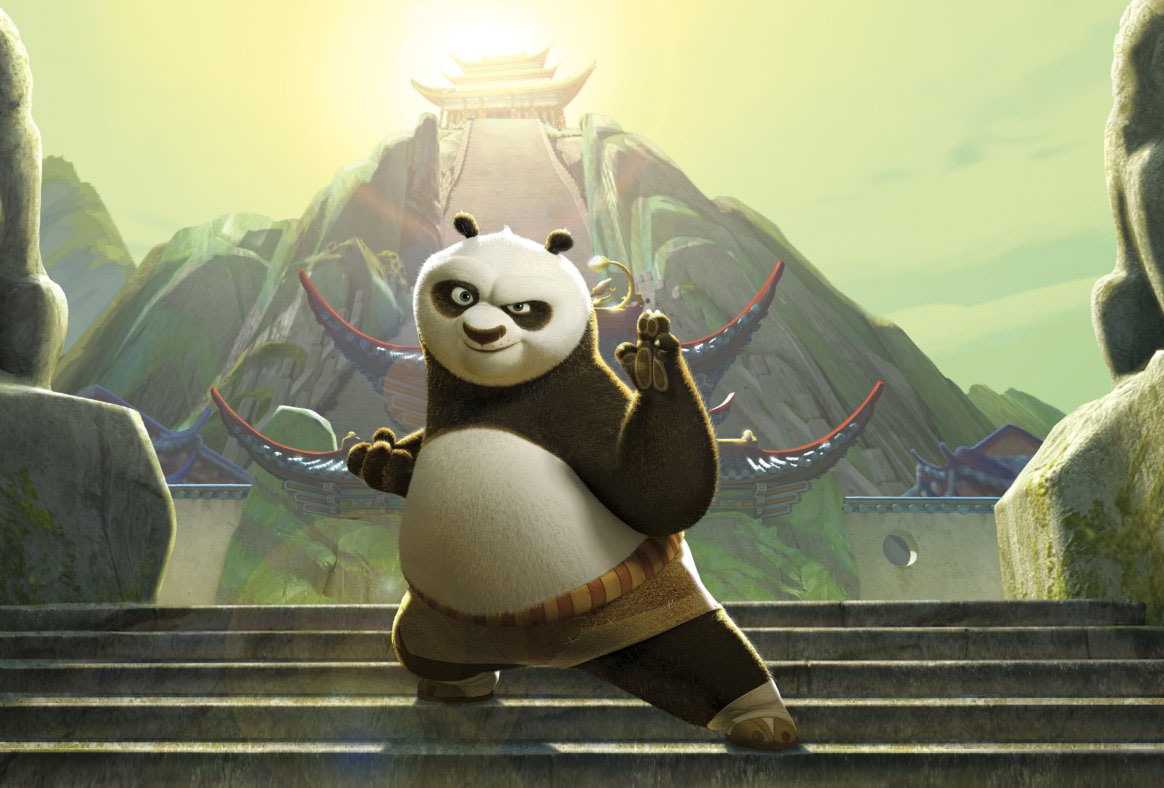 Po (Jack Black), Kung Fu Panda
Po (Jack Black), Kung Fu Panda
Power of Imagination characters are those who are reluctantly called upon to embark on an epic quest or fulfill a destiny thrust upon them. Po is a classic example of an unwitting hero when he is unexpectedly declared the true “Dragon Warrior” of his realm by Master Shifu (Dustin Hoffman).
In contrast to the other Kung Fu warriors, Po is an overweight, food-obsessed Panda whose adoptive father runs a noodle shop. Nothing about him suggests he could be a savior or a warrior. But he brings his fellow Kung Fu masters together and embraces his destiny.
Po headlines a classic Power of Imagination tale, Kung Fu Panda. This is unlikely hero judged for his appearance and his species. He defies the “just a cuddly and peaceful Panda” cliche. Po gives his all as a Power of Imagination character, as he unites his fellow kung fu masters.
Power of Will
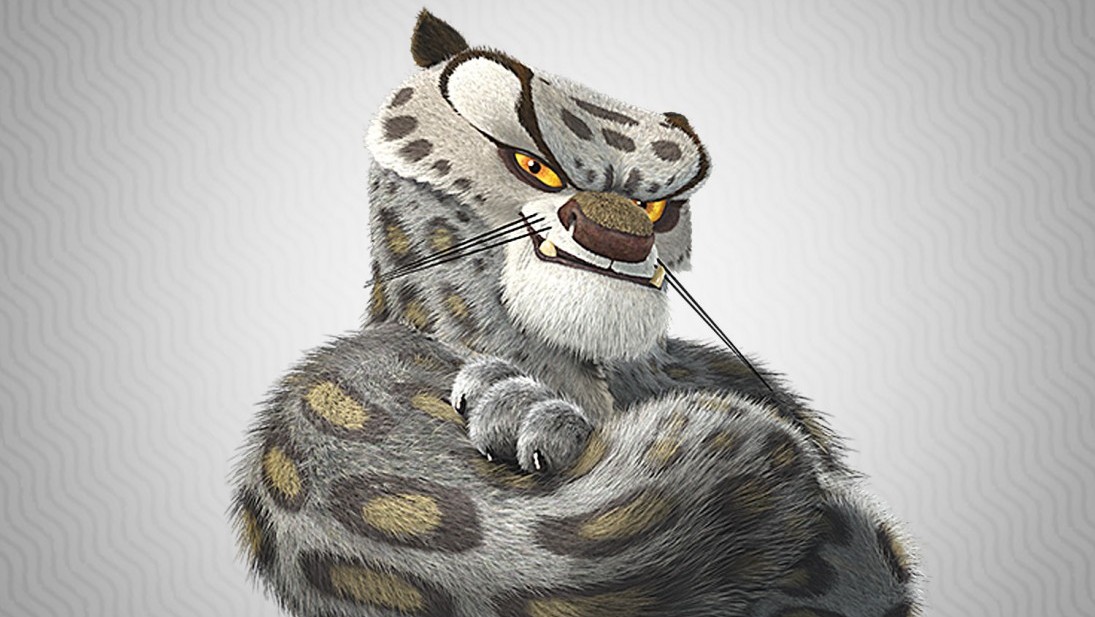 Tai Lung (Ian McShane), Kung Fu Panda
Tai Lung (Ian McShane), Kung Fu Panda
On the flipside of Po is Tai Lung, who was also a protege of Master Shifu. He turned to the Dark Side and his powers for evil. As a Power of Will Character, Tai Lung is interested in control and domination.
Power of Will characters desire is to subjugate and conquer. Tai Lung’s wants to become the Dragon Warrior, for his own selfish reasons.
Unlike Po, Tai Lung is a cat, a snow leopard. His feline tendencies lead to some humorous moments. Power of Will Characters conquer because they fear being vulnerable. We learn that Tai Lung felt abandoned, one of the reasons for his tyrannical tendencies.
Power of Will characters can either be one-dimensional or richly detailed. Tai Lung falls into the latter category. Tai Lung is the perfect foil for Power of Imagination, Po. He mistakes kindness and caring for weakness and assumes an overweight, bumbling Panda could be the Dragon Warrior and defeat him.
Power of Excitement
 Dodger (Billy Joel), Oliver and Company
Dodger (Billy Joel), Oliver and Company
Power of Excitement Characters are charming thrillseekers who are the life of the party and never think of the consequences of their endless pursuit of pleasure.
In Disney’s animated adaptation of Oliver Twist, streetwise mutt Dodger takes displaced orphan kitten Oliver under his wing. Oliver learns bad habits under Dodger, a dog who shirks responsibility and lives only for his enjoyment. Life is a game to Dodger, and New York City is his playground.
Dodger’s opening musical number “Why Should I Worry? Why Should I Care?” defines his carefree character, and demonstrates the other side to dogs as pets. They are Power of Excitement characters because they live only for what gives them joy.
Power of Ambition
Nick (Jason Bateman), Zootopia/Zootropolis
Zootopia is, if you’ll pardon the pun, a very different beast to the other movies featured on this list. The film takes place in a world of animals, as opposed the human world which features animals interacting with humans.
Power of Ambition characters are eager to gain approval or impress others with a false front. They can never be themselves because they are constantly trying to be something else. These Characters can be Salesmen or Con Artists, like Sly Fox Nick.
Foxes are cunning animals that slink away from trouble, and Nick is very much of that mind. When he is caught up in a conspiracy that threatens the whole of Zootopia, he is still only interested in escaping police custody, making a quick buck, and going back to his old ways.
Power of Conscience
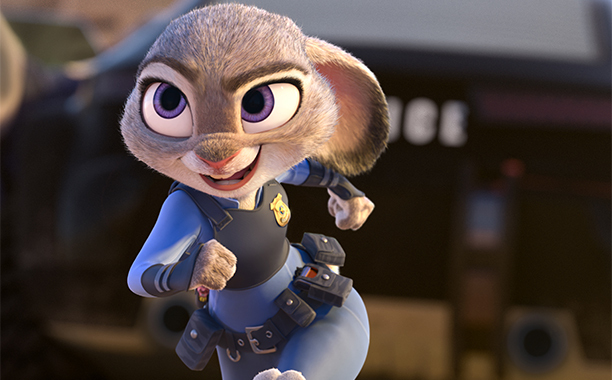 Judy Hopps (Ginnifer Goodwin), Zootopia/Zootropolis
Judy Hopps (Ginnifer Goodwin), Zootopia/Zootropolis
Power of Conscience Characters believe that they know exactly what is right and what is wrong. They operate by their own moral compass and think others should live up to a similar high moral standard. These characters will do anything to expose injustice or corruption
Rabbit Judy Hopps is the driving force behind Zootopia. She uncovers the problem at the heart of the movie and sets most of the major events of the plot in gear. She has always had to fight for what she believes in. Everyone else in the police force underestimates her due to her size and her species.
Judy has no personal life because she is dedicated to upholding the law, even when everyone tells her she isn’t good enough to do so. She is undoubtedly a force for good in the film, but skewers on the more neurotic side of the spectrum. She is uptight, critical, and immediately bristles at her unwilling partner, Nick.
Power of Idealism
 Remy (Patton Oswalt), Ratatouille
Remy (Patton Oswalt), Ratatouille
Power of Idealism characters are never satisfied. They are forever reaching for perfection, even though they can never achieve it. They want to indulge in life’s luxuries because everything else is below them. They see life as one big drama, full of highs and lows, with nothing in between.
Remy is introduced to the audience as a character unhappy with his lot, who wants to reach far beyond his station. He is fed up with living and eating like the rest of his rodent brethren.
Living in Paris, Remy wants to be a gourmet chef in the culinary capital of the world. His species is a terrible setback. If he were any other animal, it might just be feasible to be a chef. The stigma of being an “dirty rat” propels him onward to achieve his dream.
Remy finds a vessel for his craft in bumbling human kitchen boy Linguine (Lou Romano). Remy manipulates the boy to set the restaurants of Paris alight with talent and creativity. Ratatouille is a great animal Power of Idealism story.
Power of Reason
 Rabbit (various), Winnie the Pooh
Rabbit (various), Winnie the Pooh
Power of Reason characters value logic above all else. The world is a series of puzzles that must be solved, and everything must have a rational answer. Any deviation from order and fact will result in chaos.
The fun-loving inhabitants of the Hundred-Acre Wood, Winnie the Pooh, Tigger, and Piglet, upend Rabbit’s need for peace and sanity with their anarchy and disorder. Their antics are a burden on Rabbit’s life. In his ideal world, he would be left alone to farm his carrots and live the quiet life. His neighbor’s problems and turmoil will never allow this.
Rabbit is similar to his real-life animal counterparts. He is twitchy and forever on guard. Rather than this being a survival instinct, it is because he is forever aware that his friends will disrupt his peace and orderly approach to life.
Power of Truth
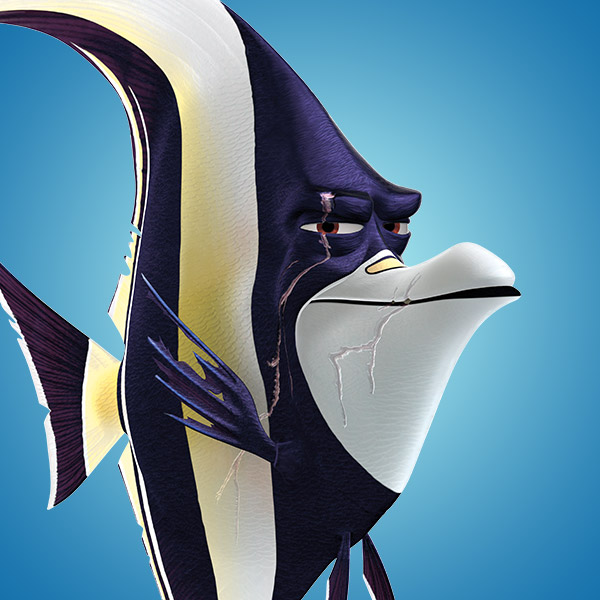 Gill (Willem Dafoe), Finding Nemo
Gill (Willem Dafoe), Finding Nemo
Power of Truth characters are paranoid, forever on the lookout for enemies and traps that might betray them. They are distrustful and uneasy about everything. They occupy themselves with trying to uncover slights and solve mysteries. These characters are often Detectives or Neurotics.
Gill is a fish who has been through a lot- his scars tell a story about why he distrusts humans and believes that there is a conspiracy surrounding the fish tank he is stuck in. He is acutely aware his life is under threat by the dentist who imprisoned him.
It’s amusing to see such a bitter, jaded character in a children’s film. Perfectly by Willem Dafoe, Gill seems more like a grizzled Private Eye or conspiracy theorist than an Angelfish in a Fish Tank. Gill’s paranoia is justified. He knows every inch of the tank in which he is trapped, and uses it to his advantage to escape.
For more examples of all the character types, you can purchase my in-depth e-books at the ETB shop, or you can read more articles on all the “Power Of…” types including James Bond, Doctor Who, Batman and Sherlock Holmes, every Tuesday. There are also 9 pinterest boards full of character examples online. Check them out and let us know at [email protected] if you have any other suggestions.
]]>
There is a Slapstick Film Festival and other, related, events every year in Bristol. The 2018 Festival has just been announced HERE for the coming year.
Aardman Animation (Wallace and Gromit, Shaun the Sheep, etc.) is a big sponsor of the festival. Slapstick figures heavily in all their feature and short film development.
One of my first assignment for the company was to do an Emotional Toolbox analysis of three of their favorite silent film era characters. Even without words the types of these three characters come shining through.
Charlie Chaplin greatest character traits are his wistfulness and poetic soul. He is a Power of Idealism character. Loss and longing figure prominently in all his stories. He is a sensitive soul who shuffles along with sadness as his constant companion.
Buster Keaton is a Power of Reason character. He is an ingenious problem solver with a deadpan attitude. He is so stiff emotionally that his nickname was “The Great Stone Face”. He had a mechanical style and tackled all situations with a robotic refusal to give up.
Harold Lloyd is an optimistic can-do Power of Ambition character. He tackles all obstacles with enthusiasm and brash confidence. His film characters want to be popular and live the easy life. These men find redemption through hard work, learning to act with integrity, or forming real relationships through honest sincere love.
 I’ve often been asked: “Why nine character types? Why not seven or thirteen or any other number?”
I’ve often been asked: “Why nine character types? Why not seven or thirteen or any other number?”
Let’s begin at the beginning. Western societies use a Hindu Arabic base-ten number system. Nine is the terminal numeral before moving to another decade or numeric cycle. The final number, Nine, represents unity, completion, and perfection. In numerology, the world progresses in distinct nine-year cycles. For computer programmers, “999” means “end of file”. The Enneagram is an ancient Sufi teaching that has nine distinct personality points.
Nine is a Symbolic Gateway to Knowledge and Inspiration
The number Nine symbolized a mystical gateway to knowledge across many different cultural traditions. The Greeks, Romans, Jews, Christians, Muslims, Buddhists, and Vikings all used the number nine to guide human beings toward some kind of transcendent truth, knowledge, inspiration or spiritual awareness.
In Greek and Roman Mythology
 The Greek God, Zeus, had nine daughters, called the Muses, who orchestrated and presided over all creative endeavors. The Muses were also the daughters of the female titan Mnemosyne who personified remembrance. Muse means one who remembers.
The Greek God, Zeus, had nine daughters, called the Muses, who orchestrated and presided over all creative endeavors. The Muses were also the daughters of the female titan Mnemosyne who personified remembrance. Muse means one who remembers.
In the ancient Greek and Roman world, all knowledge, and learning were under the patronage of these Muses. They inspired poetry, theater, music, dance, and art. Ancient educational institutions each dedicated a shrine or temple to the Muses. Such a place called as a mouseion, which is the Greek root of the modern word “museum.”
In the Ancient Greek and Roman world, creativity, memory and the passing on of knowledge and inspiration were all inextricably linked with the number nine.
In the Ancient World of Jerusalem
 There were nine doors to the holiest part of the Temple in Ancient Jerusalem. These nine doors were the gateway to G_d. Why nine doors? In the Kabbalah, writings on Jewish mysticism, the number nine symbolizes the transcendent world because nine is a threshold number that allows for the transition to the next level of existence (to move from the world of one digit numbers to the world of the two digit numbers i.e., 1 + 9 moves to the next level of two-digit numbers 10 and so on.).
There were nine doors to the holiest part of the Temple in Ancient Jerusalem. These nine doors were the gateway to G_d. Why nine doors? In the Kabbalah, writings on Jewish mysticism, the number nine symbolizes the transcendent world because nine is a threshold number that allows for the transition to the next level of existence (to move from the world of one digit numbers to the world of the two digit numbers i.e., 1 + 9 moves to the next level of two-digit numbers 10 and so on.).
Multiplying by nine also reveals the mirror symmetry among numbers. If any number is multiplied by nine the resulting single digits always add up to nine. For example 2 x 9 = 18 (1 + 8 = 9); 3 x 9 = 27 (2 + 7 = 9), 4 x 9 = 36 (3 + 6 = 9) and so on.
The ancient Hebrews referred to the number nine as a mystical threshold between one world and the next and the symbol of immutable Truth.
In the Muslim World
The Holy month of Ramadan is the ninth month of the Muslim calendar. The month of Ramadan is traditionally believed to be the time when the Quran (Koran or Muslim Bible) was sent down from heaven, as a guide to living a good and proper life and as a means to learn how to achieve holiness and enter the gateway of salvation.
 Nine and the World and Underworld
Nine and the World and Underworld
Viking mythology describes the Cosmos as being composed by nine worlds. The Ancient Mayans believed that human consciousness and history was built on nine distinct underworlds. The Divine Comedy, an epic poem written by the Italian, Dante Alighieri, in the fourteenth century, describes the author’s allegorical journey through the afterlife. In The Inferno, Dante describes nine circles of hell. In each circle, the sinners are guilty of one of three kinds of sin.
Three is a Number of Unity and Completion
Three is also considered a mystical number. Nine is divided equally into three parts with three in each part. Since ancient times the number three has symbolized unity and completion. The trinity of life is composed of substance (or form), intellect (or intelligence) and soul (or life essence). Three also symbolizes the trinity of the individual person as head (intellect), heart (emotion) and hand (physical being or physical action). Or the trinity of the family: father, mother, and child.
In Christian Tradition
In Christianity, God is divine as the Trinity. According to the Catholic Encylopedia: “The Trinity is the term employed to signify the central doctrine of the Christian religion– the truth that in the unity of the Godhead there are Three Persons, the Father, the Son, and the Holy Spirit, these Three Persons being truly distinct one from another. Thus, in the words of the Athanasian Creed: “the Father is God, the Son is God, and the Holy Spirit is God, and yet there are not three Gods but one God.” The Holy Trinity forming a single God of unity and completion.
In Buddhist Teaching
According to the Buddhist tradition, all phenomena (dharmas) are marked by three characteristics, sometimes referred to as the Dharma Seals. The first seal, Anatta, is the unchanging, permanent essence of the soul. The second, Anicca, is the inconstant, unsteady, and impermanence of physical being. The third, Dukkha, is the self or world as it perceived by the individual and others.
In Hindu Tradition
Hindu teaching divides the cosmos into a set of three planes. Bhuloka is the “Earth world,” and is the physical plane of existence Antarloka is “Inner or in-between world,” and is the world of dreams and imagination. Sivalok is the “World of Siva,” and is the realm of the Gods, the saints and the most highly evolved souls.
The Magic Square
 A magic square is three sets of three. It is created when each single digit number is used only once, but the horizontal, vertical and diagonal sums are all equal. (4 + 9 + 2 = 15 and 4 + 3 + 8 = 15 and so on). The sum 15 is also divisible by 9 and equals 3 (the number of each square in the row or diagonal).
A magic square is three sets of three. It is created when each single digit number is used only once, but the horizontal, vertical and diagonal sums are all equal. (4 + 9 + 2 = 15 and 4 + 3 + 8 = 15 and so on). The sum 15 is also divisible by 9 and equals 3 (the number of each square in the row or diagonal).
The magic square was considered a sacred and powerful symbol in the Ancient Islamic, Tibetan, Buddhist, Celtic, Indian and Jewish traditions. The Chinese patterned their architectural temples along the harmonious principles of the magic square.
If this diagram looks familiar, you might recognize it as a basis for the popular 9 square by 9 square Sudoku number puzzle.
Now you know why there are 9 character types- time to check out some articles on all of them, and to learn more you can purchase my eBooks on the ETB store.
]]>by Guest Contributor Oscar Harding
 Despite gaining something of a cult status after its six-season run, NBC sitcom Community still isn’t talked about enough. Not only is it smart and consistently funny, but its sweet and a true testament to the Power of Imagination. We’ve all suffered or enjoyed being part of a study group at some point in our life- no matter how absurd it gets, the show has always been relatable or at least has had an emotional truth to it.
Despite gaining something of a cult status after its six-season run, NBC sitcom Community still isn’t talked about enough. Not only is it smart and consistently funny, but its sweet and a true testament to the Power of Imagination. We’ve all suffered or enjoyed being part of a study group at some point in our life- no matter how absurd it gets, the show has always been relatable or at least has had an emotional truth to it.
The show is a brilliant lampooning of various kinds of Film and TV tropes, but the reason it works so well emotionally is “The Greendale Seven”. The Seven is a study group originally formed for a Spanish class. All seven then go on to take Anthropology, Biology, and History. In addition to The Study Group, their flamboyant Dean and insane former Spanish teacher round out the ensemble.
As the show progressed, certain actors from the key group of nine left the show and the emotional holes are all too visible.. Like in life, there is a bittersweet passage of time- although that doesn’t really justify a drop in quality. It just proves that character is always key. This is a lesson that both Lost and, perhaps, Twin Peaks could have learned from. The simpler something is, the better.
The Study Group is utterly dependent upon each other. Their dynamic is severely impacted when anyone is missing. They even regress as people, in some instances. I’ll be exploring how each member is part of a jigsaw puzzle that only really works when every piece is put together. Without each and every person, the show doesn’t quite work as effectively.
Power of Will
“Get me something cold and imported”
Although it could be argued greatness is thrust upon him, no Power of Imagination character would be able to control a group of people in the same way Jeff does- that character type is for the most part selfless. Jeff is every bit a Power of Will character. However, he is not a villain but instead a complex protagonist. He may be in control most of the time, but he only ever flexes his muscles when he is challenged, or actually called upon to enforce his will on others. Although he doesn’t often actively seek to be a leader or be in control, when his authority is threatened by outsiders he becomes aggressive. This is when his Power of Will character is most apparent.
Despite his obsession with his health and physique, he prides himself on avoiding work and actually putting in effort- the very crux of the show is that Jeff has to go back to college because he falsified his qualifications. He is terrified of losing control and will do whatever he can to keep it. If anyone is considered better than Jeff, he will snap- this is when his Power of Will character is most apparent. He is terrified of losing control and will do whatever he can to keep it. If anyone is considered better than Jeff, he will snap- this is atypical behaviour of Power of Will characters.
So he may not conquer and dominate, but when someone gives him power willingly, as he is charming and convincing, he becomes obsessing with keeping it- and it is the Study Group that encourages him to act on the Power of Will personality he has. It is fascinating to see a protagonist that is a Power of Will character, because they exhibit traits that are traditionally considered by villainous and antagonistic. But he is incredibly likeable whether we see his flaws or at his default mode of “the leader”. As the show goes on, his warmth and affection becomes more apparent and he softens. However, his Power of Will traits can come through at any moment.
Power of Idealism
“You seemed much smarter when I met you”
“Thank You”
Being part of a group means Britta can indulge the worst traits of being a Power of Idealism character type. She wallows in self-pity, suffering intense mood swings and always having someone to exhibit her intense pain or joy to. Whilst the Study Group can actually benefit each other in some way, acting as foils for each other’s character types, Britta is the only member who actually outright suffers by being part of a group. By actually belonging and being backed up by friends, there is no epic drama so she has to create it.
A former “political activist”, in the loosest sense, Britta Perry (Gillian Jacobs) has an interesting arc in that she goes backwards once she joins the Study Group. Every other member either remains an unchanging constant, or evolves into a better person. Britta begins as the stable heart of the group, but soon becomes referred to as “the worst” and a “buzzkill”, and it’s all downhill from there.
She soon becomes the clown of the group, even more so than Pierce. This can be attributed both to the dynamic of the Study Group, but also the fact she is a Power of Idealism character. These characters, such as Carrie Bradshaw, Rick Blaine and Zhivago, believe life is a dramatic struggle, forever needing to be epic and exceptional. Britta preaches activism constantly, reminding people of how the system is oppressing them, and how there is injustice they should be speaking out against, yet she can never quite deliver on this herself.
However, her constant striving to tackle what’s wrong in the world does rub off on the rest of the group- more often than not, she is the one to tone down Jeff, or make Pierce be more considerate of how his actions affect others. It is interesting how her character can, in moments of clarity, save the Study Group from itself by reminding them never to be complacent.
Power of Reason
“TV adheres to logic, reason, rules. But in real life, we have this. We have you.”
Power of Reason characters see the world as a series of puzzles to be solved, and always use a frame of reference to decipher things, be it a simple conversation or an actual mystery. Abed’s frame of reference is Popular Culture. When he does not get his way, and people or events deviate from his line of reasoning, he goes beserk. This is a regular occurrence and is the only time we see the cool, logical Abed a dramatic breakdown.
Abed Nadir (Danny Pudi) may not be the leader of the group, or even its central focus, but he is certainly its heart. He represents the best and worst about Community. Although it is a habit he improves upon as the show progresses, and the Study Group makes him less of a Power of Reason character, Abed filters his understanding of the world through what he sees in Movies, TV shows and comic books. He believes real life is like a TV show, and is obsessed with meta narratives.
He is a classic Power of Reason character, only getting emotionally involved with events when he believes it will drive forward the narrative of the TV show in his head, or a student film he happens to be making. The Study Group inadvertently helps him engage more emotionally and be more socially conscious, but they also encourage his bad habits by going along with many of his more insane ideas that allow him to better understand the world. Because he does not get tangled up in petty arguments and affairs of the heart, like everyone else, his detachment can often resolve conflict. In his most graceful moments, Abed is capable of incredible warmth because of the friends he surrounds himself with- and it is a pure warmth because he is unaware of his impact on others as it is a distraction for him and he admits to not fully comprehending things in the same way as the others.
Power of Conscience
“I am being assertive, and it is getting results!”
Power of Conscience characters, especially in comedies, are exposed for their hypocrisies, and the dark side of their character- going to extremes to maintain what they believe is just- can make for some very funny scenarios. We learn that Annie is unhinged and it is always hilarious, rather than disturbing. She starts as uptight, obsessed with maintaining order, and eventually learns to relax- but evens as her character learns and grows, she maintains a neurotic streak that comes out at the most inconvenient times.
Annie begins as one of the strongest characters, but in the show’s final season she is doing evolving and is given little to do, rarely relapsing into her old ways but losing the essence of her character.
Starting out as arguably the “child” of the group, even though she and Troy are the same age, Annie Edison (Alison Brie) is one of the characters who actually grows up and matures throughout the course of the show (as do Troy, Abed and Jeff. The others, not so much). However, the trappings of being a Power of Conscience character remain throughout.
When we are introduced to Annie, she is a goody two-shoes bookworm who always believes in what she deems to be fair and this is why her constant clashes with cheating slacker Jeff are so amusing. She is met with the polar opposite to herself, and their relationship is one of the most enduring in the show because they change each other for the better.
Power of Imagination
“You moving in here was supposed to tone us down!”
It’s interesting in such a madcap sitcom about a community college that former jock Troy Barnes (Donald Glover) has greatness thrust upon him in a place where no epic quest is ever likely to unfold. However, Troy’s arc from ignorant egotist to a hero with a heart of gold is arguably the most satisfying character arc out of anyone in Community. He leaves the show eventually with his head held high, and has changed for the better because of his time at Greendale with the Study Group. Whenever the show frequently takes diversions into genre spoofs of everything from westerns and space operas to police procedurals and action movies, Troy is always our reluctant hero even if he is not the natural leader.
Surprisingly, it is Power of Excitement character Pierce who turns to him most often for guidance and support (similar, in fact, to the dynamic of Rick and Morty). In fact, at some point every character puts their trust in Troy even when he believes he can’t help them. Like any Power of Imagination character, Troy brings harmony and balance, in this case to Greendale.
But, mostly because of his emotional investment in Abed, Troy willing to go along with the regular descents into high-concept madness that Community takes. He is a conventional Power of Imagination character in an unconventional setting you wouldn’t expect to house a reluctant hero like Troy.
He is the only person who truly understands Abed, and their friendship is one of the most charming in American television. He often guides Abed and assists him more than anyone else, because he has responsibility placed on him to guide his friends on the right path, whether it is in a ludicrous scenario or real-life dilemmas. Whether his foil is Power of Excitement or Power of Reason, Troy is forced to step up for the good of those around him.
Power of Excitement
“Ain’t no party without drugs!”
Pierce Hawthorne (Chevy Chase) is a perennial agent of chaos, immediately identifying him as a Power of Excitement character. Pierce adheres to every stereotype of a Power of Excitement character- constantly seeking to please himself and have fun, he gets bitter and jealous when he is excluded from anything exciting, often with disastrous results.
A spoilt man-child who inherited a moist towelette empire, despite belonging to an accepting Study Group, Pierce often sabotages his friends as well as himself simply through his personality. As we explore his backstory through the show, we learn he is very much a “Peter Pan” type who never really grew up on account of his enormous wealth and oppressive father. He may not be the suave playboy type, like other Power of Excitement characters such as James Bond, Tony Stark or Indiana Jones, but his downfall is his refusal to ever settle. He has studied at Greendale longer than any of his friends because it is the only place where he can get his “fix”.
Pierce has moments of elderly wisdom and profound kindness, but they are few and far between. When these moments occur, they have so much more impact because it is unexpected, so is never completely irredeemable, but he never really evolves because of belonging to the Study Group, remaining a constant irritant and disruptor. However, there is an entire episode dedicated to the group dynamic when they temporarily exclude Pierce, and it becomes apparent that they need him every bit as much as he needs them.
Power of Love
“He’s dead to me, and anyone who goes to that fight will be too. Now, let’s sing!”
Power of Love characters may not mean to be so domineering and aggressive, but it is in their nature, and Shirley is no exception. Everything Shirley Bennett (Yvette Nicole Brown) does is for those that she loves, whether it’s her sons, the Study Group or Jesus. She often believes she has to save her immoral friends in the Study Group from themselves. Even her friends have described her as “cloying” before.
But Shirley always means well- there are rarely malicious or selfish actions behind her intentions. But she displays the archetypal flaws of Power of Love characters- her affection and concern seems to translate in possessiveness and and aggressive need to dominate her friends hearts. Just because she seems sweet, besides her constant baked goods, doesn’t mean she is innocent.
Shirley sometimes just doesn’t understand why her friends don’t listen to everything she suggests, but she is relentless in making them see her point of view for their own good. She has sometimes even admitted that she is so kind and affectionate so that others will love her unquestionably.
Surprisingly, the characters who understand her most are Jeff and Pierce- sharing similar traits and the more life experience than their younger friends, these two relationships in particular are interesting because they show each other their strengths as well as their flaws. A Power of Love character makes sense as part of an ensemble, be it dramatic or comedic. Shirley belongs in the Study Group and the other members don’t realize how important it is they have a friend like her, just as flawed by the most loving and forgiving of them all.
Power of Truth
“I’m nuts, Jeff! Get with the program!”
Power of Truth characters are usually Detectives like Clarice Starling, or neurotic observers like Jerry Seinfeld. They believe there is always something sinister going on, often involving him. These characters are often paranoid, and forever restless. There is no one more paranoid, and of the belief there is a great conspiracy afoot, then former Spanish-teacher-turned-student Benjamin Franklin Chang (Ken Jeong).
Chang is a borderline psychopath, constantly destructive and on the surface seems like an agent of chaos. But he is not a Power of Excitement character because he isn’t looking for adventure and pleasure. He genuinely acts out of a feeling of rejection.He just believes people are out to get him, and rightfully so- people constantly reject him and this only fuels his actions.
Whenever the student body of Greendale become exaggerated heroes or villains in high-concept episodes like the Paintball trilogy, Chang is usually switching allegiances or seeking those he (wrongly) believes are evil and bringing them to justice. His biggest desire is to belong to the Study Group, but he is not Power of Ambition because he doesn’t put on a front.
He is an outsider to the Study Group, and Chang shows us that, to quote another supporting character, “their love is toxic”. Because of they way they are, unwilling to accept outsiders, characters that want to belong with them, like Chang and Dean Pelton, find their character traits exacerbated. If the Study Group simply accepted Chang, he may have identified as Power of Excitement or Power of Ambition.
Power of Ambition
“I heard you guys having a tiff. What’s the ruckus?”
“We were just wondering how often a man can come in here wearing an elaborate costume to deliver us irrelevant news.”
Like all Power of Ambition characters, Dean Craig Pelton (Jim Rash) wants to put on a front of being, at the very least, competent. He might even achieve it if he wasn’t so occupied with trying to join a group of students. Power of Ambition characters tend to pride themselves on some form of material wealth, or lifestyle, anything that can show them to be the best, or outstanding in some way. For Dean Pelton, it is his numerous costumes, clearly a literal disguise for his need to please and to impress.
He will often show up out of nowhere, interrupt a Study Group meeting in an attempt to become involved with the plot of the episode. He is an incredibly lovable character despite this, and the Study Group are genuinely fond of him, something he is either unaware of or chooses to overlook- it’s hard to tell which one of these it is.
All he wants is for Greendale to be respected, for the Study Group to involve him in their zany adventures, and for the love of Jeff- two of these are achievable goals, but because of the Dean’s characteristics as Power of Ambition, one cancels out the other and he ultimately achieves nothing. Despite this, he remains a welcome presence, as opposed to an irrelevant character who leaves no impact since he does not evolve.
For more examples of all the character types, you can purchase my in-depth e-books at the ETB shop, or you can read more articles on all the “Power Of…” types including James Bond, Doctor Who, Batman and Sherlock Holmes, every Tuesday. There are also 9 pinterest boards full of character examples online. Check them out and let us know at [email protected] if you have any other suggestions.
]]>
by Guest Contributor Oscar Harding
There is no other character in all of film and television like The Doctor from Doctor Who.
Countless actors have delivered unique and differing interpretations of everyone from Hamlet on stage to The Joker on film, Blanche DuBois to Hannibal Lecter. Sometimes characters in TV series like Eastenders or Film franchises like The Avengers are recast.
But The Doctor changes appearance, and retains all past memories. Every actor who has played The Doctor is also playing everyone who has come before them.
It is a fascinating anomaly and means The Doctor has, at some point throughout the show’s 53-year history been every single one of the “Power Of…” character types.What is particularly interesting is that in some way, the defining characteristics of each incarnation are a direct result of how their predecessor died.
The logic of the Regeneration concept allows for this unique quirk no other fictional character is able to do. With the latest actor to play the role, Jodie Whittaker, recently being announced, and the current actor, Peter Capaldi, about to finish his time in the role, it seems like a good time to look at an incarnation of the Doctor who has embodied each of the 9 character types.
BE WARNED! Major spoilers follow for every era of Doctor Who.
Power of Love
The First Doctor (William Hartnell) was introduced as a grandfather who fled his home planet with his Granddaughter, Susan. Every dangerous adventure he undertakes is occupied by a need to protect Susan as much as he also wants to show her the Universe and broaden her horizons. Susan eventually decides to stay with a man she meets on one of their adventures, and though it is heartbreaking for The Doctor, he realizes that letting Susan stay is the safest option for her.
Every dangerous adventure he undertakes is propelled by a need to protect Susan as much as he also wants to show her the Universe and broaden her horizons. Susan eventually decides to stay with a man she meets on one of their adventures, and though it is heartbreaking for The Doctor, he realizes that letting Susan stay is the safest option for her.
He may be remembered as grumpy, but almost every action of this incarnation is motivated by love, even if it doesn’t initially seem like it. This Doctor, despite his appearance, is young and everything he does is for his companions. He isn’t the embittered, battlescarred Doctor we meet later on in the show’s history.
His iconic speech as he bids his Granddaughter farewell shows the love and admiration he has for her:
Power of Ambition
The Third Doctor (Jon Pertwee) is the result of his predecessor being forced to change appearance against his will, and he wakes up, without his transport, and exiled to earth. He ultimately wants to be accepted by the military taskforce who have hired him, and to return to him people and be accepted by them.
His flamboyant action-hero persona is a cover for a lonely man who just wants acceptance. A classic Power of Ambition character, but one who is justified in his behaviour. His predecessor was forced to regenerate and exiled by his own people. Of course the Third Doctor would be Power of Ambition- the way he was born wouldn’t allow him to be anything else.
In this video him with his typical Power of Ambition attitude towards others:
Power of Will
Just one look at the outfit of The Sixth Doctor (Colin Baker) tells you everything you need to know about him. His predecessor looked young and acted young. Full of wonder and naivety, he saw the best in people and sacrificed his life to save his companion. Born from selflessness, The Sixth Doctor is brash and rather jarring- he is hard to like until you really get to know him.
Like any Power of Will character, he has the capacity to be boorish and abrasive, which can be as much of a strength as it is a weakness. This particular personality becomes The Doctor’s downfall as he is put on Trial by his own people (again) and pays for it with his life. Power of Will characters believe it is better to burn out than to fade away, and as the below video demonstrates, The Sixth Doctor takes no prisoners and offers no apologies for being Power of Will:
Power of Reason
Having made so much noise in his previous form, The Seventh Doctor (Sylvester McCoy) learns from his most recent mistakes by opting for a more calculated, cerebral approach to saving the Universe. As time has gone on, fans and critics alike have praised this darkest of Doctors. Power of Reason characters see everything as a challenge or a puzzle to be solved, and The Seventh Doctor is a big fan of chess, playing everyone off against each other to save the day, be they friend or foe.
Acting the utter fool as a front, this incarnation was a master strategist, reveling in obstacles to overcome and not stopping often enough to think of those who were pushed aside in his quest to find resolution. Ultimately, this drive to outwit everyone would define the character for years to come, as the actions of The Seventh Doctor inadvertently caused The Time War- more on that shortly.
This video, showing The Doctor talking himself out of a gun being pointed in his face, is an excellent example of a Power of Reason character at work:
Power of Idealism
The Eighth Doctor (Paul McGann) cut a dashing, Byronic figure. A handsome romantic forever searching for adventure and that next high. He couldn’t be more of a Power of Idealism character, which makes his death all the more tragic. He regenerated from his cold, calculated predecessor on New Year’s Eve, 1999 and was immediately thrown into a race against time to save reality itself, without a moment to pause for breath. He had a love of the finest things in life, and was very much like the great Romantic poets like Shelley.
It was this lust for life which made him blind to the machinations going on in the Universe that resulted in The Time War, a devastating conflict that raged across every dimension. True to his Power of Idealism characteristics, he chose to ignore the conflict, except to play the hero and help those caught in the crossfire, though never interfering because that would involve difficult choices- being a warrior would be beneath him. Ever unique, he would “help where I can. I will not fight.” It was this refusal to try and stop the War that brought about his demise, as he tries to save just one person instead. Forced the regenerate, his end is perhaps the most heartbreaking of all the incarnations, as he tells those who would engineer his rebirth:
I don’t suppose there’s any need for a Doctor anymore. Make me a warrior.
You can watch the whole tragic ending in the video below:
Power of Imagination
Great men are forged in fire. It is the privilege of lesser men to light the flame.
The War Doctor (John Hurt) might be the most interesting incarnation of them all, and not just because he is the one we know the least about. Literally born out of necessity, he was conditioned for conflict and refused to take the name of “The Doctor” as he became a commander in The Time War. Everything we have seen and read of him, however, shows him to be reluctant- to fight, to kill, to forgive himself, even to accept that he is just as much “The Doctor” as everyone who came before and after him.
The War Doctor is every bit the reluctant hero, forced into existence and on an epic quest to end the greatest war in all of creation. Like any Power of Imagination character, greatness is thrust upon him, despite his protestations that he is the “Doctor No More”. There are incarnations that would take this quest on with swagger, many of them citing pacifism and choosing not to let anyone die because of their actions, but not The War Doctor. Forever doubting his is good and heroic, he is exactly like Frodo Baggins or Luke Skywalker, other classic examples of Power of Imagination characters. Exhausted by centuries of war, and having saved the day, this hero gets a happy ending as he regenerates, knowing he can proudly call himself The Doctor again.
The below video shows The War Doctor faced with his greatest decision, which could end the War but wipeout his home planet:
Power of Excitement
Power of Excitement characters are the life and soul of the party, and The Tenth Doctor (David Tennant) is relentlessly fun to be around, and a real ladies’ man. But he never dares to look back, or stops to think that he can’t always be the hero. When he reflects on heartbreak or lets down his facade of constant cheeriness and optimism, it is in the most dramatic fashion. Everything he does is with flair, and in pursuit of adventure, but more often than not it is at the cost of those whose paths he crosses. Despite being a hero, like a Power of Excitement character always is, The Tenth Doctor is an agent of chaos.
Ultimately, this thrillseeking incarnation is a deeply tragic character because he rarely stops to reflect on his actions until it is too late. He was born from a predecessor haunted by his actions in the Time War who found love in Billie Piper’s Rose Tyler. That love is amplified when he turned into the Tenth Doctor.
At the end of his life, sacrificing himself to save his friend Wilf (Bernard Cribbins), his regeneration is the most destructive and explosive because he held off the process for so long. His parting words were “I don’t want to go” and he seems to be the personification of Dylan Thomas’ quote “rage, rage against the dying of the light”.
The below video shows the reckless dark side of this archetypal Power of Excitement character at work, as he defies the very laws of time:
Power of Truth
The Eleventh Doctor (Matt Smith) came into existence after his predecessor, all alone, finally gave in and regenerated. He was literally given a baptism of fire, his TARDIS in flames and crashing towards Earth. After such a dramatic entrance, he is immediately faced with a multitude of mysteries he must solve, and even when he tries to ignore intrigue, this Doctor must turn detective for the good of those around him.
He finds a family after suffering so much loss as his previous incarnation, and the only way he can keep them safe is to pursue the conspiracies that seem to surround him. Ancient religious orders determined to kill him, a woman who claims to be his wife popping up all over his timelines, and cracks in the skin of the universe that threatens to consume everything. Facing similar challenges as his predecessor, Seventh Doctor, this incarnation has to be cunning, quickwitted, and always alert. The irony is it is this very characteristic is what brings about his end, which haunts him all the way at the start. His era gets very confusing, which seems appropriate for a quintessential Power of Truth character like The Eleventh Doctor.
The below video shows us what happens when a Power of Truth character is proved right, and he gets to the bottom of a mystery. It’s not pretty…
Power of Conscience
The Twelfth Doctor (Peter Capaldi) began his time in the role obsessed with the question “Am I a good man?”. By the end of his life, desperately trying to save a community of colonists from an army of Cybermen, and stranded with two incarnations his best friend and worst enemy, The Master, he gave a defining speech when confronting them as they fled the chaos, which can be viewed in the video below. It speaks volumes to his character, and is the most obvious evidence that he is a Power of Conscience character through and through.
He started out as a bitter man, his predecessor stranded on Trenzalore for hundreds of years, protecting the planet from swarms of enemies and ending it all from sheer exhaustion. But this incarnation’s face was familiar- in fact, it is the face of a man he saved many years before. It was a reminder to himself to do what is right, no matter the cost. He may have been harsh like the Sixth Doctor at times, but came to prove that despite his gruff exterior, he had a heart the size of The First Doctor. No other incarnation has beat himself up so much about doing the right thing, and never letting injustice occur. Power of Conscience characters think about nothing else, and The Twelfth Doctor is no exception. He thought less of adventure, and more about what it means to be The Doctor- a good man.
What’s Next?
We won’t get our first glimpse of The Thirteenth Doctor (Jodie Whittaker) until Christmas, and we won’t get to know her character until late next year, so it’s impossible to guess what type she will be. But if the conditions of her predecessor’s demise are anything to go by, she could very well be a Power of Love character. Only Time (and Space) will tell.
For more examples of all the character types, you can purchase the in-depth e-books at the ETB shop, or you can read more articles on all the “Power Of…” types including James Bond, Batman and Sherlock Holmes, every Tuesday.
And if you want to start an argument about guest contributor Oscar Harding’s analysis please post in the comments section!
]]>
by Guest Contributor Oscar Harding
There are two possible endings to every love story, either the characters are together at the conclusion or they are apart. If characters are to stay together they must work through their differences and, basically, grow up and grow together. When a love story ends tragically either one character can’t grow up or some greater internal force keeps them apart, like honor or duty.
Recent examples of each end are, Barry Jenkins’ 2016 best picture-winner Moonlight, and Abdellatif Kechiche’s 2013 Palme D’or-winner Blue Is The Warmest Colour. Spoilers follow for both films.
In Moonlight, central character Chiron (Ashton Sanders), discovers his sexuality and his love for friend Kevin (Jaden Piner). They are torn apart by Kevin’s brutal betrayal until their reconciliation after more than a decade.
In Blue Is The Warmest Colour, central character Adèle (Adèle Exarchopolous) has some awkward sexual experiences with men before realizing that enigmatic Emma (Lea Seydoux) is the one for her. But two fall out forever over Adèle’s impulsive affair.
Moonlight is a Power of Love story, and Blue is the Warmest Colour is a Power of Idealism story. In a Power of Love story, the couple ends up together. In a Power of Idealism story, they are separated lovers who are haunted by loss and longing.
In Moonlight, Chiron is a shy alienated Power of Reason character and Kevin is a charming eager to please Power of Ambition character. Kevin’s desperate desire to fit in explodes in violence toward Chiron as Kevin tries to fit into a toxic culture of the thuggish gang masculinity. Only drug dealer Juan (Mahershala Ali), a kindly Power of Love character provides the understanding and nurture that Chiron needs in his social isolation.
Chiron and Kevin are reunited after years apart. A more mature and humbled Kevin discovers Chiron has protected himself with the outward toughness of a thug. Kevin has found contentment as a fry cook who supports his son. Kevin’s honesty and tenderness give Chiron what he needs- love, not lust. Their relationship shows both men hope for real happiness.
 In Blue is the Warmest Colour, both Adèle and Emma are Power of Idealism characters. They are intense, passionate, and gifted. Emma is a bold vibrant painter and Adele is a talented writer, too afraid to show her work and risk possible rejection.
In Blue is the Warmest Colour, both Adèle and Emma are Power of Idealism characters. They are intense, passionate, and gifted. Emma is a bold vibrant painter and Adele is a talented writer, too afraid to show her work and risk possible rejection.
Emma is devoted to Adèle. Adele is the great love of her life and muse for her glorious early paintings. She believes Adèle is perfect. Adele is unwilling to accept Emma’s adoration and be satisfied. Adèle fears Emma will ultimately reject her. She has an affair when Emma is preoccupied with helping a friend. When Emma discovers Adele’s betrayal they have an explosive screaming break up.
Years later they meet and a reconciliation is possible. But Emma has completed her emotional journey. She has grown up and finds contentment and peace in an ordinary domestic life. This grounds her creative growth and helps her mature as an artist.
Adele cannot move past her torment over her lost “great love’ with Emma. She is adrift in loss and longing and wants Emma back, or to have an affair at the very least. Emma refuses. She cherishes her family. Even though Adele is still her passionate “great love” Emma walks away from her. Adele simply cannot move on.
Power of Idealism stories always end with separated lovers. Other examples are Bridges of Madison County, Casablanca, or Gone with the Wind.
Power of Love stories always end with the lovers together. Examples are every romantic comedy you’ve ever seen.
Character is structure. Will your couple live happily ever after despite their differences? Or will the lovers part ways, remembering always that “great love” that got away?
]]>

